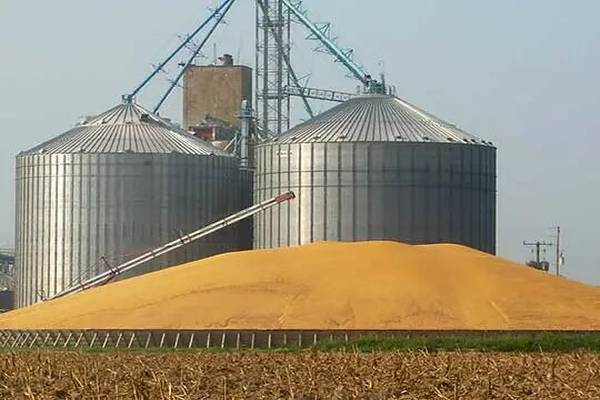Essential Storing Equipment In Agriculture
Drafted by: vijaychourey26@gmail.com
Agriculture plays a vital role in providing food for the growing global population. To ensure a steady and reliable food supply, efficient storage methods are essential in agriculture. Proper storage preserves the quality of harvested crops, reduces losses, and allows farmers to store surplus produce for future use. In this article, we will explore the different storing equipment available in agriculture and how they contribute to the industry's success.
The Importance Of Proper Storage In Agriculture
Proper storage in agriculture is critical for various reasons. It ensures that harvested crops, such as grains, fruits, and vegetables, remain fresh and safe for consumption. Additionally, it enables farmers to store their produce during times of excess supply and sell it when demand is high, thereby stabilizing prices in the market.
Traditional Storage Methods
Storing in Barns: Barns have been a traditional storage solution for centuries. They provide shelter from the elements and protect crops from pests and rodents. However, barns may not offer precise environmental control, leading to spoilage in certain climatic conditions.
Silos: Silos are tall, cylindrical structures that are commonly used to store grains. They provide excellent protection against pests and keep the stored grains dry. However, traditional silos may lack proper temperature and humidity regulation.
Granaries: Granaries are small, elevated structures that are suitable for storing small quantities of grains. They offer some protection from pests but may not be as efficient as larger storage units.
Modern Storage Solutions
Refrigeration Units: Refrigeration units are commonly used to store perishable agricultural products like fruits and vegetables. These units maintain low temperatures, preserving the freshness and nutritional value of the produce.
Controlled Atmosphere Storage: Controlled atmosphere storage involves adjusting the gas composition within storage containers to slow down the ripening process of fruits and vegetables, extending their shelf life.
Grain Dryers: Grain dryers are essential for reducing the moisture content in grains, preventing mold growth and ensuring longer storage periods.
Silo Bags: Silo bags are a flexible and cost-effective alternative to traditional silos. They provide temporary storage for grains and protect them from external elements.
Warehouses: Warehouses offer large-scale storage solutions with controlled environmental conditions, suitable for various agricultural products.
Climate-Controlled Storage Units: These specialized units allow farmers to regulate temperature, humidity, and other environmental factors to ensure the preservation of sensitive crops.
The Role Of Technology In Agricultural Storage
IoT Sensors: Internet of Things (IoT) sensors enable real-time monitoring of storage conditions, allowing farmers to make data-driven decisions for maintaining optimal storage environments.
Automated Storage Systems: Automated storage systems streamline inventory management and reduce the risk of human error in handling stored crops.
Data Management for Inventory Control: Advanced data management software helps farmers keep track of their stored inventory, facilitating efficient stock rotation and reducing losses.
Sustainable Storage Practices In Agriculture
Solar-Powered Storage Solutions: Solar-powered storage units are environmentally friendly alternatives, reducing the carbon footprint of agricultural storage.
Use of Eco-Friendly Materials: Employing eco-friendly materials for storage construction contributes to sustainability efforts.
Recycling and Repurposing: Repurposing old structures or using recycled materials for storage construction promotes sustainable practices.
Challenges In Agricultural Storage
Pest Infestations: Insects and rodents can cause significant losses in stored crops if not managed effectively.
Spoilage and Losses: Improper storage conditions or delayed marketing can lead to spoilage and financial losses for farmers.
Climate Change Impact: Unpredictable weather patterns due to climate change pose challenges in maintaining optimal storage conditions.





